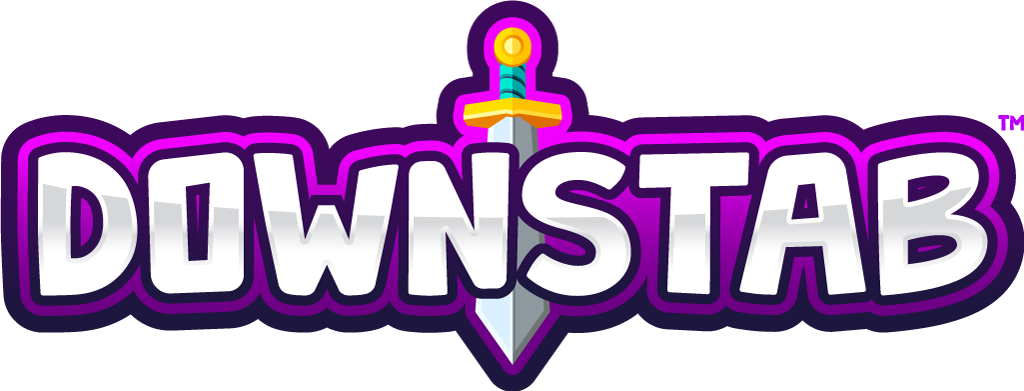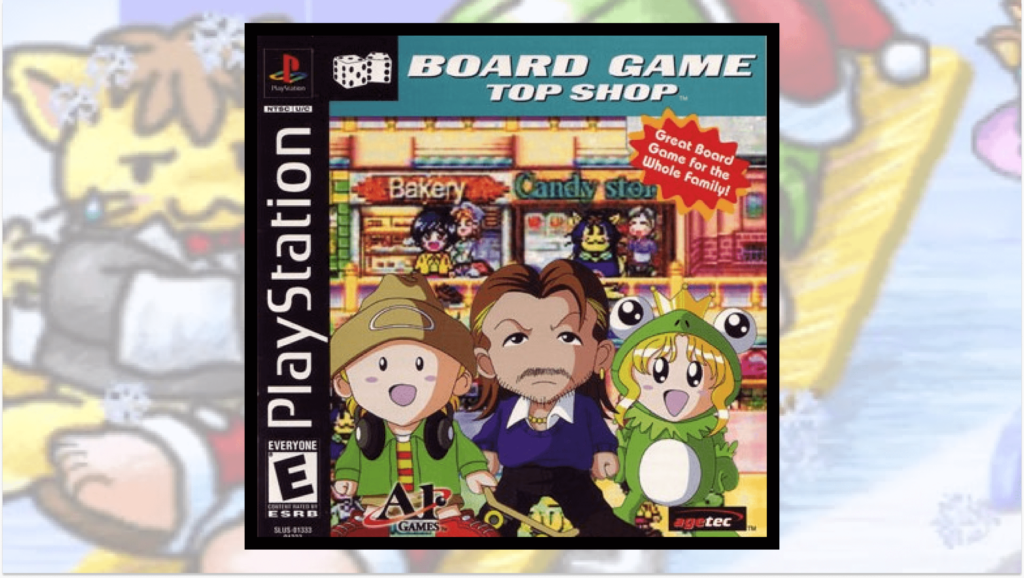The Simple Series of games has been something of an addiction for me. Ever since I first saw the blatantly generic titles sitting on the shelf when I was younger, I was always intrigued. It started with disinterest for the lackluster cover arts, but as the collecting bug grew within me, I began to idolize them as something worth seeking out. There’s just something about a bowling game literally called “Bowling” that was strangely poetic.
Thankfully some 20 years later these games don’t tend to be all that expensive. Well, the ones with boring names and art anyway. The games that have at least something more than nominal value are usually a bit pricier, but nothing crazy. That’s how I ended up with games like All-Star Slammin’ D-Ball and Board Game Top Shop here. Or as I was soon to find out finally playing it, just Top Shop. A to Z stream integrity ruined on day two.
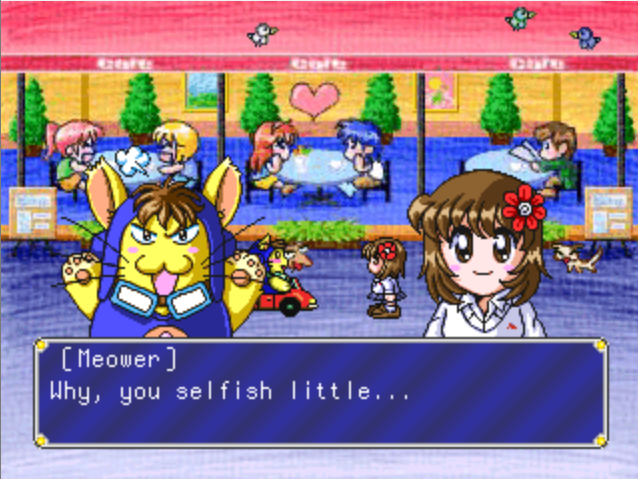
Top Shop is a digital board game. That’s the best way I think I can describe it. You might be thinking, “Oh, like Mario Party?” to which I would say, “Yes, exactly like Mario Party! But without any minigames, additional dice, items, branching paths, or varied board layouts.” And then you’d be like, “… oh” and I would respond, “… yeeaaaahhhh… but it’s not as bad as it sounds!” The game really is just a digitized version of what could easily be played on a physical board with a group of friends or family.
The basis of gameplay has you rolling dice (which is done by spinning a pencil with random numbers on the side, for some unknown reason), moving around a mall-like setting with vacant storefronts. If you land on a vacant spot you can purchase it and lease out a variety of shops and eateries. If you later land on a vacant spot adjacent to one you already own, you can purchase that and expand your storefront. This is beneficial in allowing for others to more often land on the stores you own, but also increases the value of items in your store and allows for more stock in your store, which we’ll get too later. You’ll go through turn after turn with your opponents rolling and moving around, hoping to earn more money from stores than the others, until one player meets the preset win conditions.
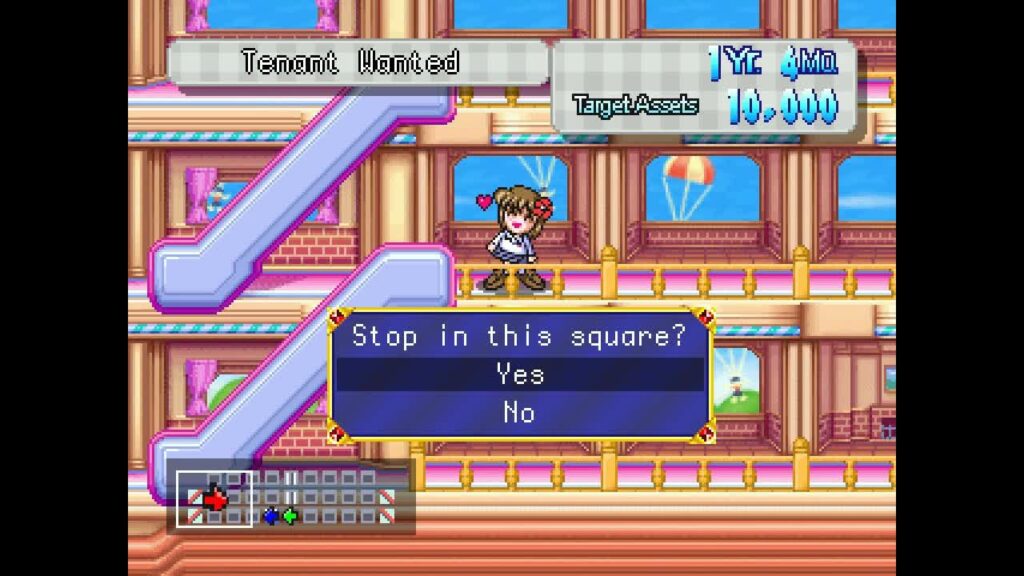
The biggest mechanic the game offers comes in the form of each store’s inventory. After you purchase a store, you’ll get some themed inventory to sell to others that land on your owned business. Meat Land, for example, carries a variety of chicken and sausage meals to buy, while the book store has, well, books. When landing on a store front you do not own, you have to purchase something. Some items cost more or less, and if you only have one item left to buy, then you’re buying that. Buying the last item from your competition can actually be very beneficial for you, as it allows you to then buyout the store itself, converting it to one of your own! To prevent this from happening throughout the game, if you land on one of your own stores, you can restock any one store you own. Doing this strategically can make it so your stores do not run out of inventory, and you can also reload your store with only high priced items. It’s all pretty basic, but did offer some unique strategies not seen in other digital board games.
Speaking of that, the game had me really thinking of the Wii’s Fortune Street. Buying multiple locations and pumping up the price of all the surrounding stores is the same in this game as that one. Buying out stores/property is also similar, though you can be way more mean in Fortune Street and straight up buy whatever you want if you have the money: Top Shop at least makes you purchase all inventory before being allowed to buyout the shop (and even then you’re limited on how much you can buy each turn). I don’t think I’d compare the games more than that in terms of similarities, but in my friend circle Fortune Street has become something of a cherished meme game, so I’d be remiss to not mention it here.
Like Monopoly and Mario Party, Top Shop is meant to be played again and again. There are about a dozen cute characters you can play, each just being an avatar that offers nothing else besides something fun to look at. About 10 or so “boards” can be used, sporting different floor and mall layouts, elevators, and stairs. Despite this, and in stark contrast Mario Party and board games in general, I don’t find myself feeling you’d get anything more of significance out of the game playing it more than once. Or on different boards. Each game would take roughly an hour at minimum, and that number can get astronomically higher if you change win parameters and total number of players (Shoutout for the game including 6-player Multi Tap support, one of the only games that allows for this). Sadly after about 30 minutes, you’ve experienced all the game has to offer, and you’re left with boring, repeated motions to complete your grind.
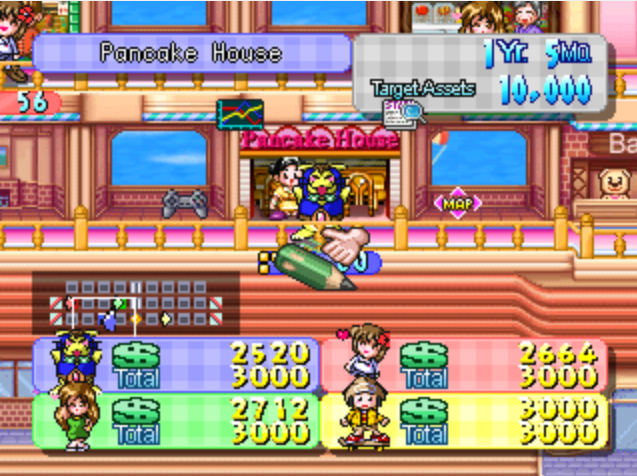
Am I disappointed I played this game? Absolutely not! I’ve always wanted to try it, and for what it sets out to do it actually isn’t that bad. Am I disappointed in the game itself? Absolutely! There was potential here to be something great. The mechanics are almost there. It’s on the cusp of being something more. It’s got just the right idea, but doesn’t quite execute enough to keep you interested in playing long enough to fully complete a game. For the Simple Series though, this is a pretty good game. It’s a board game, as the “title” suggests, and it’s immediately more complicated than the racing and sports titles in this series. If you’re looking at it and the price is right for you, I say go ahead and pick it up. Just don’t expect anything you couldn’t otherwise do better on a game of Monopoly.
Laters,
Jsick
